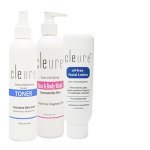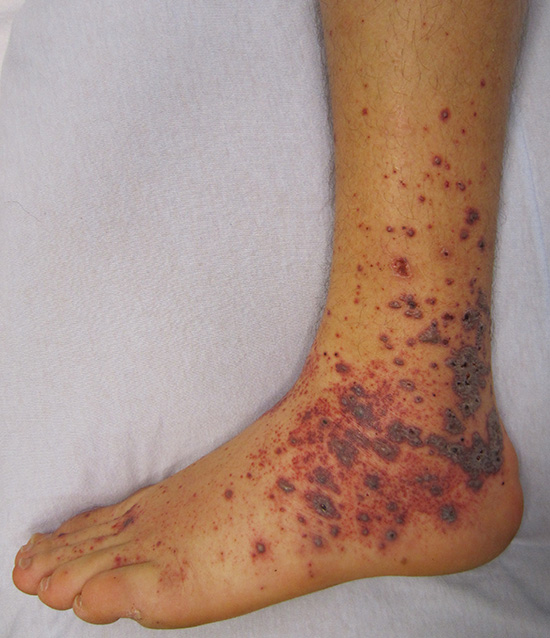unable to wear any kind of clothes of any material due to sensitive skin
by mohamed
(chennai, tamilnadu, india)
when i am wearing any kind of shirt or any clothes in my upper part of the body i am getting heartburn problems if i am not wearing any clothes i am normal i tried all types of clothes including cotton i don't know what to do please suggest me some good ideas what actually happens is my stomach starts to bloat then i get chest tightness or irritation and the other day i get constipated to have a good sleep i used to apply balm on my chest, nose to have good sleep the symptoms is just like or same as heartburn but only i get when wearing a shirt
My reply
Hi Mohamed, thank you for writing. Have you asked your doctor or health care practitioner about this very painful symptom? It sounds like you may be experiencing clothing allergy symptoms.
Many fabrics are treated with chemicals, dyes pesticides, formaldehyde and formaldehyde resins. Darker colored dyes tend to cause more allergies.
Clothing may also have residues of soaps which can cause an allergic reaction. Also some clothing contains latex, rubber or spandex which some people are allergic to.
You can learn more about clothing allergies at this Clothing Dermatitis site.
Another possibility is that you may be allergic to dust mites or animal dander that settles into clothing. The easiest way to avoid this is to only use freshly washed clothing.
Do you notice any pattern in your symptoms? I recommend that you start a journal that details your symptoms and each type of clothing you are wearing.
Then you can begin to notice a pattern. For example, do your skin rashes happen more with newer clothes? Or clothes of a particular fabric or color? Or clothes washed with a particular soap? Pay attention to all the details so that you can find out what your body is reacting to.
Clothing That May be More Irritating
Yes, some people think that cotton, natural fabrics or organic can be the least irritating for a clothing allergy, however even organic cotton may be treated with formaldehyde, chemical finishes or contain dyes that could be causing a reaction.
Also, if the cotton contains traces of bleach, soaps or other chemicals this may also cause a skin rash or allergenic reaction as you described.
The Dermatology Online Journal
Clothing That is Less Irritating
It is very complicated to find non-irritating clothing if you have a textile allergy. Try looking for chemical free clothing rather than 100% or 100% organic clothing, since this does not guarantee that you won't be exposed to allergens.
Some of the fabrics which seem to provoke less of an allergic reaction may surprise you...
Silk is often well tolerated by people who are sensitive to other fabrics. It is natural but very expensive.
Surprisingly, 100% polyester clothing is sometimes less irritating. I've found this for myself, and it is also more affordable! This really depends on the individual clothing though.
Other choices are more natural but may be less convenient. For example, if you don't mind ironing, choose 100% linen or 100% cotton fabrics that wrinkle easily! This means they don't have chemicals added to them to remove the wrinkles, which requires a little more time.
Wool can be scratchy, but may provide some relief from the worse of your clothing allergy symptoms. It can be expensive, and you will need to find washable wool.
If you like jeans, some denim fabrics may be relatively free of allergens.
Some people deal with a clothing allergy by using less irritating fabrics and washing their clothes in a hypoallergenic laundry detergent or laundry soap.
Then they soak the clothes for a few hours or overnight overnight with a few drops of lemon or white vinegar. Then the clothes are washed again without soap. You may want to try this first, in case you are reacting to the soaps used to launder the clothes.
I've also discovered that washing clothing and fabrics with zeolite helps to remove chemical residues.
One last thing, I've learned a lot about this recently and some people who start reacting to chemicals experience the problem getting worse even if they remove the chemical exposures. If this is happening for you, please see my experience at When Hypersensitivity Goes Too Far.
Please let us know what you learn Mohamed, and I will continue to add to this page as I learn more about this subject. You can leave a comment on this page. Does anyone else reading this have experience with clothing allergy or clothing dermatitis?
Comments for unable to wear any kind of clothes of any material due to sensitive skin
|
||
|
||
|
||
|
||
|
||
|
||
|
||
|
||
|
||
|
||
|
||
|
||
|
||
|
||
|
||








